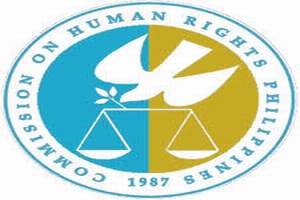DILG Central News
ROXAS: Cordillera Region to recieve over P2 Billion for Anti-Poverty ProjectsApril 24, 2014
The national government has allocated over P2 billion in the next two
years to boost local economic development and help fight poverty in the
Cordillera Autonomous Region (CAR), Interior and Local Government
Secretary Mar Roxas announced today.
For this year, Roxas said the city government of Baguio and Tabuk as well as 52 other local government units (LGUs) in Abra, Apayao, Benguet, Ifugao, Kalinga, and Mountain Province will get a total of P809,683,750 under the Grassroots Participatory Budget Process (GPBP).
Under the same program for 2015, all municipalities in the Cordillera Region are entitled to P15 million each while the two cities are given a budget cap of P50 million, or a total of P1.225 billion.
Roxas explained that the GPBP is a new initiative being facilitated by DILG in which project identification and monitoring of implementation are implemented by LGUs in partnership with non-government organizations (NGOs) and people’s organizations (POs).
For the year 2014, the national government has allocated a total of P20.03 billion under GPBP to fund 19,553 poverty-alleviation projects that were identified by 1,226 local government units all over the country in coordination with civil society organizations in their respective communities.
The bulk of the P20-billion budget were sourced from Department of Agriculture (P9.286 billion); Department of Social Welfare and Development (DSWD); (P2.638 billion); DILG (P2.476 billion); Department of Education (P1.449 billion); and Department of Health (P1.355 billion).
Other implementing agencies include Department of Agrarian Reform (P574 million); Department of Trade and Industry (P549 million); Department of Labor and Employment (P507 million); TESDA (P423 million); Department of Environment and Natural Resources (P417 million); Department of Trade (P175 million); Department of Energy (P97 million); and National Electrification Administration (P78 million).
The GPBP institutionalizes the Aquino government’s “bottom-up” approach in budget preparation process, which was introduced in 2013, according to Roxas.
“Sa pamamagitan ng GPBP, ang LGU sa pakikipag-ugnayan sa mga community-based organizations ay tumutulong sa paghanda ng kaukulang budget para sa mga proyekto na sila mismo ang magpapatupad kasama ang DILG,” Roxas said.
The DILG chief explained that previously, the national budget is being prepared from the top, with government leaders deciding what projects to fund at the local level. The GPBP, he said, reverses the process by allowing would-be project beneficiaries to identify the projects that the government will in turn include in the preparation of the annual budget.
The GPBP, he stressed, empowers not only the LGUs but the NGOs and POs as well in deciding what to do with the annual budget allocated for local government units under the program.
Under GPBP, municipalities are qualified to receive a maximum of P15 million while cities are entitled to P50 million annually to fund local projects that include Municipal Water System, Livelihood Projects, Farm to Market Road, Irrigation System, Pre-Planting and Post-Harvest Facilities, Agriculture Production, Processing and Marketing, Livestock Raising and Plant Propagation.
For this year alone, Roxas said a total of P270 million has been allocated for Abra; P60 million for Apayao; P150 million for Benguet; P34,683,750 million for Kalinga; P105 million for Kalinga and P90 million for Mountain Province.
Next year, budget allocation under GPBP for each provinces are broken down as follows: Abra, P405 million; Apayao, P105 million; Benguet P205 million; Ifugao P165 million; Kalinga, P155 million and Mt. Province, P150 million.
“Sa ilalim ng GPBP, ang LGUs at ang taong bayan ay binibigyang kapangyarihan na maging may-ari ng mga proyekto na makakatulong para labanan ang kahirapan. Isa itong paraan para tiyakin na ang lahat ay kasama natin sa pagtahak ng tuwid na daan,” Roxas said.
Part of task of the NGOs and POs, he noted, is to monitor the implementation of the project to ensure that they are implemented according to plan.
Meanwhile, under the Performance Challenge Fund (PCF) of the DILG, an estimated P70 million awaits “performing” LGUs. PCF is an incentive fund given to qualified LGUs which have been conferred the Seal of Good Local Governance (SGLG), previously known as Seal of Good Housekeeping (SGH).
Under the PCF scheme, qualified LGUs are entitled to incentive fund amounting to P1 million for municipalities, P3 million for cities and P7 million for provinces. The DILG has also allocated P6,405,256 for a number of water and potable water supply projects, mostly in Mountain Province.
“Ang mga proyektong ito ay magiging pag-aari ng taong bayan dahil sila ang nag-isip kung anong magandang proyekto na makakatulong sa kanila kaya sila mismo ang magiging bantay habang ito ay ipinatutupad hanggang sa matapos,” Roxas said.
For this year, Roxas said the city government of Baguio and Tabuk as well as 52 other local government units (LGUs) in Abra, Apayao, Benguet, Ifugao, Kalinga, and Mountain Province will get a total of P809,683,750 under the Grassroots Participatory Budget Process (GPBP).
Under the same program for 2015, all municipalities in the Cordillera Region are entitled to P15 million each while the two cities are given a budget cap of P50 million, or a total of P1.225 billion.
Roxas explained that the GPBP is a new initiative being facilitated by DILG in which project identification and monitoring of implementation are implemented by LGUs in partnership with non-government organizations (NGOs) and people’s organizations (POs).
For the year 2014, the national government has allocated a total of P20.03 billion under GPBP to fund 19,553 poverty-alleviation projects that were identified by 1,226 local government units all over the country in coordination with civil society organizations in their respective communities.
The bulk of the P20-billion budget were sourced from Department of Agriculture (P9.286 billion); Department of Social Welfare and Development (DSWD); (P2.638 billion); DILG (P2.476 billion); Department of Education (P1.449 billion); and Department of Health (P1.355 billion).
Other implementing agencies include Department of Agrarian Reform (P574 million); Department of Trade and Industry (P549 million); Department of Labor and Employment (P507 million); TESDA (P423 million); Department of Environment and Natural Resources (P417 million); Department of Trade (P175 million); Department of Energy (P97 million); and National Electrification Administration (P78 million).
The GPBP institutionalizes the Aquino government’s “bottom-up” approach in budget preparation process, which was introduced in 2013, according to Roxas.
“Sa pamamagitan ng GPBP, ang LGU sa pakikipag-ugnayan sa mga community-based organizations ay tumutulong sa paghanda ng kaukulang budget para sa mga proyekto na sila mismo ang magpapatupad kasama ang DILG,” Roxas said.
The DILG chief explained that previously, the national budget is being prepared from the top, with government leaders deciding what projects to fund at the local level. The GPBP, he said, reverses the process by allowing would-be project beneficiaries to identify the projects that the government will in turn include in the preparation of the annual budget.
The GPBP, he stressed, empowers not only the LGUs but the NGOs and POs as well in deciding what to do with the annual budget allocated for local government units under the program.
Under GPBP, municipalities are qualified to receive a maximum of P15 million while cities are entitled to P50 million annually to fund local projects that include Municipal Water System, Livelihood Projects, Farm to Market Road, Irrigation System, Pre-Planting and Post-Harvest Facilities, Agriculture Production, Processing and Marketing, Livestock Raising and Plant Propagation.
For this year alone, Roxas said a total of P270 million has been allocated for Abra; P60 million for Apayao; P150 million for Benguet; P34,683,750 million for Kalinga; P105 million for Kalinga and P90 million for Mountain Province.
Next year, budget allocation under GPBP for each provinces are broken down as follows: Abra, P405 million; Apayao, P105 million; Benguet P205 million; Ifugao P165 million; Kalinga, P155 million and Mt. Province, P150 million.
“Sa ilalim ng GPBP, ang LGUs at ang taong bayan ay binibigyang kapangyarihan na maging may-ari ng mga proyekto na makakatulong para labanan ang kahirapan. Isa itong paraan para tiyakin na ang lahat ay kasama natin sa pagtahak ng tuwid na daan,” Roxas said.
Part of task of the NGOs and POs, he noted, is to monitor the implementation of the project to ensure that they are implemented according to plan.
Meanwhile, under the Performance Challenge Fund (PCF) of the DILG, an estimated P70 million awaits “performing” LGUs. PCF is an incentive fund given to qualified LGUs which have been conferred the Seal of Good Local Governance (SGLG), previously known as Seal of Good Housekeeping (SGH).
Under the PCF scheme, qualified LGUs are entitled to incentive fund amounting to P1 million for municipalities, P3 million for cities and P7 million for provinces. The DILG has also allocated P6,405,256 for a number of water and potable water supply projects, mostly in Mountain Province.
“Ang mga proyektong ito ay magiging pag-aari ng taong bayan dahil sila ang nag-isip kung anong magandang proyekto na makakatulong sa kanila kaya sila mismo ang magiging bantay habang ito ay ipinatutupad hanggang sa matapos,” Roxas said.
DILG Website
OTHER HUMAN RIGHTS PROMOTIONS WEBSITES
PROTECTION AND PROMOTION OF HUMAN RIGHTS
-----------------------------------------------------------------------------------------------
------------------------------------------------------------
-----------------------------
------------------------------------------------------------
-----------------------------


























































0 comments:
Post a Comment